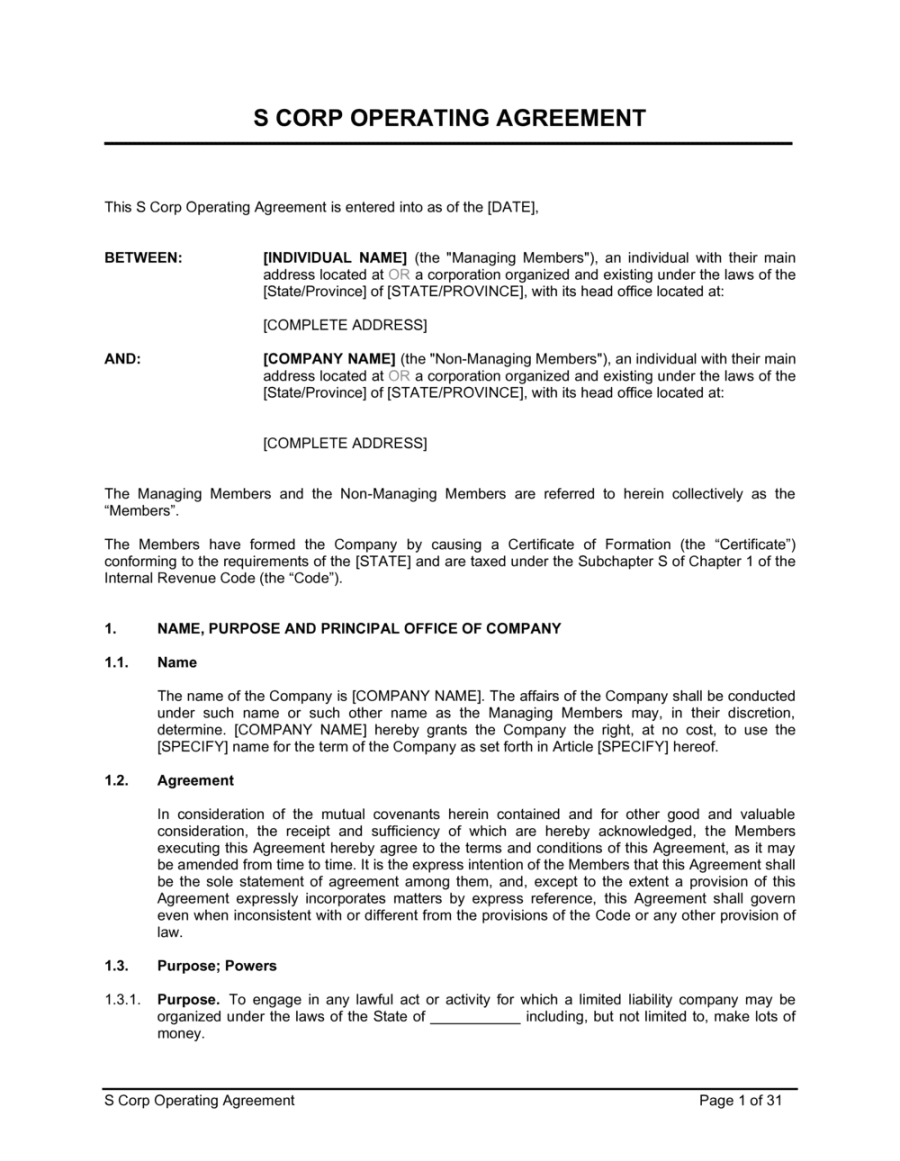A Corporation Operating Agreement is a crucial document for any corporation, regardless of its size or industry. It serves as the internal rules and guidelines for how the company will be managed and operated. While many corporations rely on their state’s default rules, a well-drafted Operating Agreement provides significant benefits by:
Clarifying Ownership and Roles: The agreement explicitly defines the ownership structure of the corporation, outlining the percentage of ownership held by each shareholder. It also clearly delineates the roles and responsibilities of each shareholder, director, and officer, minimizing potential conflicts and misunderstandings.
Key Elements of a Comprehensive Operating Agreement

Image Source: business-in-a-box.com
A well-crafted Operating Agreement should include several key elements:
1. Preamble
The Preamble should briefly introduce the corporation, its purpose, and the date of formation.
2. Definitions
This section defines key terms used throughout the agreement, ensuring clarity and consistency.
3. Name and Registered Office
This section states the corporation’s legal name and its registered office address.
4. Purpose
This section outlines the corporation’s primary purpose and any permitted activities.
5. Capitalization
This section details the authorized and issued shares of the corporation, including the number, type, and par value of each class of shares.
6. Shareholders
This section identifies each shareholder, their ownership percentage, and any special rights or restrictions associated with their shares.
7. Directors and Officers
This section outlines the roles and responsibilities of directors and officers, including their election, removal, and compensation.
8. Meetings
This section establishes the procedures for holding shareholder and director meetings, including notice requirements, quorum rules, and voting procedures.
9. Decision-Making
This section outlines the procedures for making important corporate decisions, such as approving budgets, declaring dividends, and entering into significant contracts.
10. Financial Matters
This section addresses financial matters, including how the corporation will maintain its books and records, how dividends will be distributed, and how the corporation’s finances will be audited.
11. Indemnification
This section outlines the circumstances under which the corporation will indemnify its directors and officers from liability for certain actions taken in their official capacities.
12. Dispute Resolution
This section outlines the procedures for resolving disputes among shareholders, directors, and the corporation. This may include mediation, arbitration, or litigation.
13. Buy-Sell Agreements
This section may include provisions for the purchase and sale of shares upon certain events, such as the death, disability, or retirement of a shareholder.
14. Amendment Procedures
This section outlines the procedures for amending the Operating Agreement.
15. Governing Law
This section specifies the state law that will govern the interpretation and enforcement of the agreement.
16. Severability
This section provides that if any provision of the agreement is found to be invalid or unenforceable, the remaining provisions will remain in full force and effect.
17. Entire Agreement
This section states that the Operating Agreement constitutes the entire agreement between the parties with respect to its subject matter.
18. Counterparts
This section provides that the agreement may be executed in counterparts, each of which shall be deemed an original.
19. Effective Date
This section states the effective date of the agreement.
Design Considerations for a Professional Template
To convey professionalism and trust, consider the following design elements:
Font: Choose a clean, professional font such as Arial, Times New Roman, or Calibri. Avoid overly decorative or difficult-to-read fonts.
By carefully considering these elements, you can create a professional and effective Corporation Operating Agreement template that will serve as a valuable asset for your corporation.